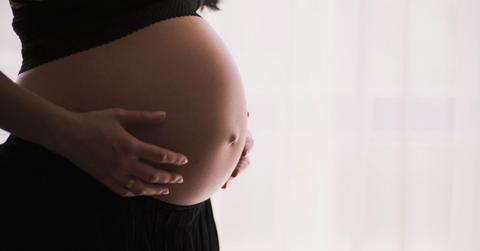Pregnancy Ages Women Faster? New Study Finds Connection Between Pregnancy and Faster Aging in Women

Study reveals that women who have been pregnant appear to be biologically older compared to those who haven't.
A recent study conducted by the Columbia University Mailman School of Public Health suggests that pregnancy may accelerate the aging process in women.
The study, involving 1,735 young individuals in the Philippines, reveals that women who have been pregnant appear to be biologically older compared to those who haven't. Additionally, it indicates that the more pregnancies a woman experiences, the greater the apparent biological aging.
Interestingly, the study found no association between the number of pregnancies fathered and biological aging among men of the same age group.
This suggests that there is something specific to pregnancy or breastfeeding that contributes to accelerated biological aging in women. These findings have been published in The Proceedings of the National Academy of Sciences.
This study builds upon previous epidemiological research showing that high fertility can have detrimental effects on women's health and longevity. However, it was previously unclear whether these reproductive costs manifest earlier in life, before the onset of disease and age-related decline.
One challenge has been quantifying biological aging in young individuals, but this study overcame that obstacle by utilizing new tools that analyze DNA methylation (DNAm) to assess various aspects of cellular aging, health and mortality risk. These tools, known as 'epigenetic clocks,' enable researchers to study aging earlier in life, addressing a crucial gap in the understanding of biological aging.
Lead author Calen Ryan, Ph.D., notes, "Epigenetic clocks have revolutionized how we study biological aging across the lifecourse and open up new opportunities to study how and when long-term health costs of reproduction and other life events take hold."
Ryan explains that their findings suggest pregnancy accelerates biological aging, particularly in young women with high fertility. Importantly, the study tracked changes in pregnancy number over time and linked them to changes in biological age.
- What Lies Beneath: NASA Scientist Believes Aliens May Have Found 'Perfect' Hiding Spot in Earth's Oceans
- Global Threat: Russia Insider Warns West of 'World War Using Nuclear Weapons' Amid Escalating Support for Ukraine
- Countdown to Disaster? Ex-NATO Official Warns Russia, Iran and China Could Wage WWIII in Just Years
Even after accounting for factors such as socioeconomic status, smoking and genetic variation, the association between pregnancy history and biological age persisted among women but not men from the same sample. This suggests that factors related to childbirth, rather than sociocultural influences associated with early fertility or sexual activity, play a role in biological aging.
Ryan emphasizes the importance of considering the context of the findings, particularly regarding pregnancies occurring during late adolescence when women are still growing. He suggests that such pregnancies may pose significant challenges for young mothers, especially if access to healthcare and support is limited.
Never miss a story — sign up for the Front Page Detectives newsletter. Be on the scene the moment news breaks.
While the study provides valuable insights, Ryan acknowledges that more research is needed to fully understand the impact of pregnancy and reproduction on the aging process. Additionally, he highlights the need to consider variations in the aging process across different regions and populations.
Become a Front Page Detective
Sign up to receive breaking
Front Page Detectives
news and exclusive investigations.
